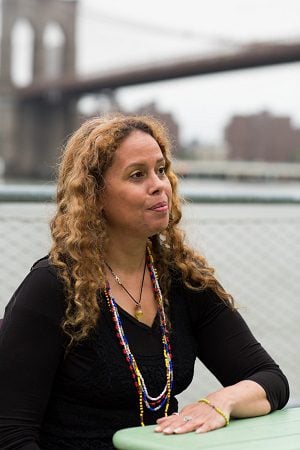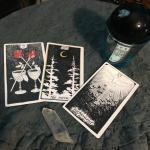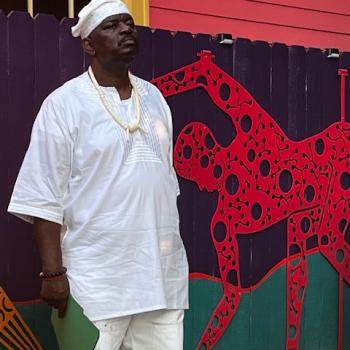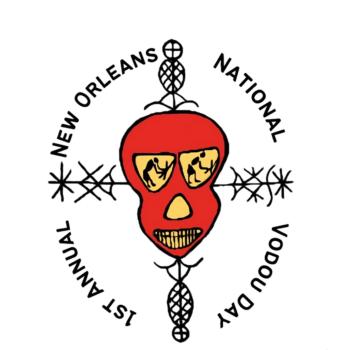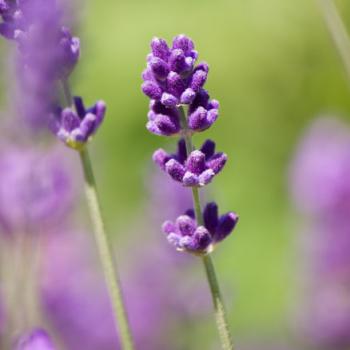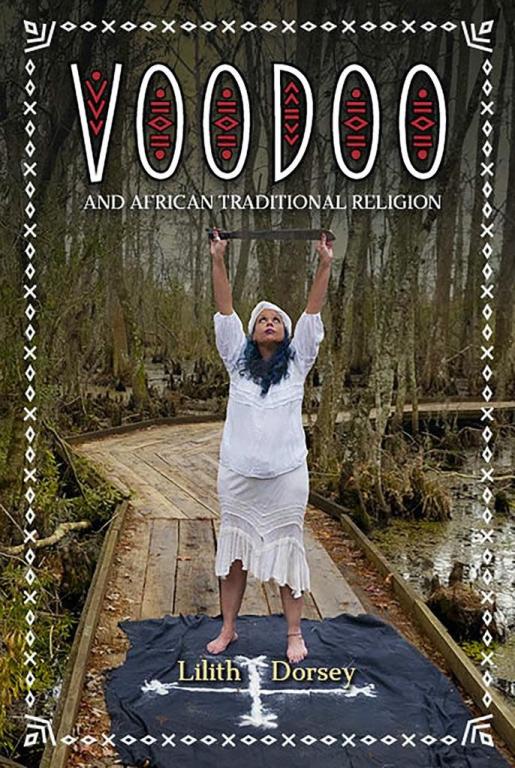
The long-awaited re-release of my book Voodoo and African Traditional Religion is here. For over a decade this book was virtually unavailable, with some used copies costing almost a thousand dollars. It hurt my heart that this knowledge has been out of print for so long, and I longed for it to see the light of day again. The following is an excerpt from the Introduction, so you can get an important little taste of what it contains. I hope you check it out.
Introduction- A Time To Talk
As a longtime scholar and practitioner of Voodoo, Vodou, Santería, Candomblé, and even occasionally Palo Mayombe, I have long recognized the need for a book like this one. The African Diasporic religious traditions are both strikingly similar and vastly different. Dependent on a number of factors, the traditional mainstays from West African practice make up the sacred tapestry of these religions. This book gives a cursory examination of each of these traditions, the most common dos and don’ts in the religions, eventually leading up to rituals and offerings you can perform yourself. Hopefully, it will provide you with a springboard for further spiritual and academic study. You could spend the rest of your life just trying to fully comprehend even one small aspect of these ancient traditions. To that end I have included at the close of this book a short description of recommended books and music relating to them.
It is also to be remembered that each temple, house, ile, or hounfor has its own specific set of rules and practices. One may offer a certain Orisha (Santería divinity) one type of food in one area and the exact opposite in another. So if you are provided with information in these pages that goes against what you may have been taught, please follow the teachings you were given. I offer this information only as a guide for those wishing to explore some of the basic tenets of these divine systems of life and thought. In my graduate work with film, television studies, and anthropology at New York University, I did a lot of theorizing about meaning and truth. Ultimately, anyone living in our odd postmodern universe realizes that he or she has to discover his or her own beliefs based on a variety of factors such as culture and environment. This book stands as a survey of meaning and veracity in a set of religious worlds where secrets are often best kept secret and meaning is almost always oral and ethereal.
One basic tenet of these religions is that every being and object is imbued with its own ashé. Ashé (pronounced ah- shay or ah say) is a complex concept to understand; it operates like a universal life force energy permeating all things. It is a divine current that means life, grace, blood, kingship, growth, power, force, and energy. It represents the essence of something, its being, and its intrinsic power. Everything contains its own ashé: people, gods, animals, places, trees, sounds, and even rocks. Ashé stands in opposition to chaos and disorder; it is the supreme being as a sacred power. Ashé is the ultimate absolute that defies definition.
In Voodoo and Santería, training is only based in part on factual knowledge, with the bulk of the learning concerning experiential and devotional knowledge. The teacher-student relationship is like a lifelong parent-child bond for followers of Voodoo and Santería.
Finding a Spiritual Teacher
It would be wonderful if there were an easy set of rules that people could follow to determine the validity of one spiritual practice and practitioner or another, but that is just not the case. The truth of the matter is that practices and practitioners completely run the gamut.
Fortunately, most of the African Traditional Religions have their own internal ranking system based on lineage. Each spiritual family is judged on the reputation of its members. The drawback to this system is obviously that a person must be familiar with someone in the practices to research someone’s background and reputation.
When two Lucumí or Santería initiates meet, one of the first things that they do is exchange lineages. Many times in certain cities of the United States, like New York and Miami, common spiritual ties are discovered. It is like finding a long lost relative, or discovering that you know someone’s brother or sister. The people of the African Diaspora were forcibly scattered across the globe. This utilization of what anthropologists term fictive kin, or creating family relationships where blood ties do not exist, provides individuals with a strong support structure to replace conventional family bonds that were unfortunately destroyed. Some people think that you can judge a practitioner’s validity, meaning his or her ability to teach you and confer the proper initiations, by who is charging the lowest price. Trust me, bargain shopping for initiations is not always a preferred method where your spiritual growth is concerned. In fact it is highly discouraged. An expensive store is often thought to be more exclusive, so why shouldn’t an expensive spiritual initiation be afforded the same prestige. One practitioner explained it to me thusly: Traditionally, in Nigeria a person was required to give long-term service to his or her priestess, priest, and spiritual house. This frequently required moving to the location of the temple and remaining there for a year or longer. When this traditional tribute is considered, the substitution of money in lieu of an amount of time makes much more sense in the modern world. Often, the money required for these ceremonies is used to pay for food, alcohol, flowers, clothing, herbs, candles, incense, offerings, and payment to the drummers and additional priests and priestesses to complete the tasks at hand.
As I have mentioned, once an individual goes through the process of initiation with an ile, he or she becomes part of the spiritual family and is expected to provide not only monetary support but also help with cooking, cleaning, herbal preparations, and the other daily tasks. Ultimately, I believe one should have the utmost faith in one’s spiritual leaders. If you doubt them, then eventually you will end up doubting yourself. I was at a bembe (Lucumí drum ceremony) once where someone became possessed by Oshún (the goddess of love and dance), who was quite taken with one of the young men there. She told him he possessed a great musical talent and he was just wasting it at his current job. Instead of following her advice, he took it as an insult to his chosen life. He did not quit his job, and he missed out on the special advice and blessings Oshún was trying to bestow on him. He is still struggling almost twenty years after these events occurred. Your spiritual teachers should always be your trusted confidants, friends, and mentors. In many ways, it is like choosing a physician, because this person holds your spiritual life and health in his or her hands.
I belabor this point because as a Voodoo and Santería practitioner, lecturer, and author I constantly meet people who describe unpleasant experiences with one ATR house or another. Once you attach yourself to a group that you are not happy with, there is very little, if anything, you can do about it. Not only is your money gone, you can’t recoup the spiritual energy you have given out. I have heard stories of people taking their ritual items and either giving them away or throwing them into the ocean. I’ve seen people lock them away in closets or basements and try to ignore them. This may seem like a way to sever or lessen your ties, but rarely have I seen it be successful. Most often people just end up continuing their practices on a less formal basis. So please choose wisely the first time. Pick someone you trust and respect, who also has the same moral and ethical ideas as you do.
Signed copies of Voodoo and African Traditional Religion are available from Warlock Press here, or if you wish you can order from Barnes and Noble, Amazon, or check out Indiebound which will direct you to a local bookseller in your neighborhood.
As always if you have enjoyed this post do me a favor and please remember to like, comment and share !


